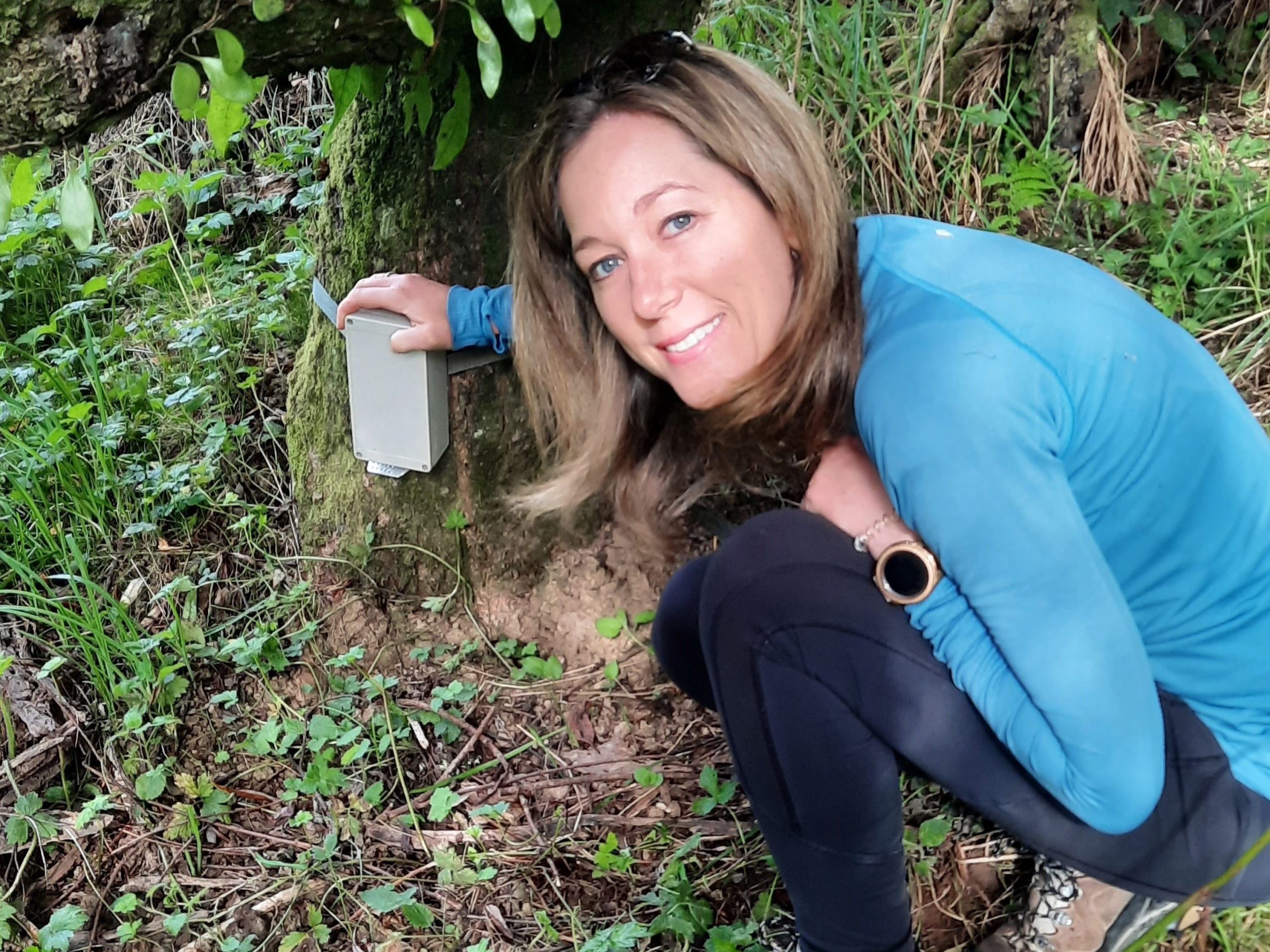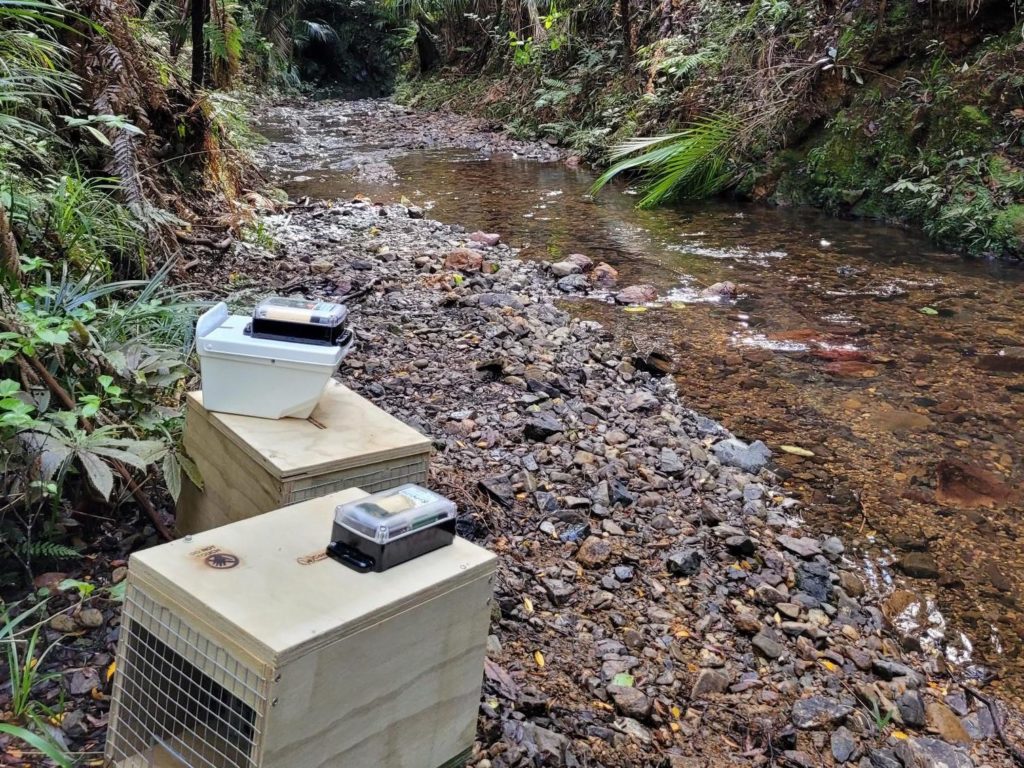To reach an ambitious goal, you’re going to need some ingenious thinking. Aotearoa New Zealand is investing heavily in new tech and tools to reach the Predator Free 2050 target. With International Women’s Day upon us, we chatted with Dr Helen Blackie who is at the helm of several exciting developments happening in this space.

Life on the job
As a Senior Principal Biosecurity Consultant at Boffa Miskell, Helen spends a fair bit of her time managing research and development projects in pest management and conservation.
You probably know her best as the name behind several game-changing inventions in the predator free space, including long-life lures, pest identification sensor pads and AutoDispense lures.
“Working on developing new tools to help control introduced predators in NZ is really satisfying, as you feel part of a wider goal and initiative where you can really help improve the outcomes,” says Helen.
“My work is very diverse, which is a fantastic part of the job. One day I may be helping set up a field trial to test a new technology, or meeting with engineers to go over designs of a new tool.
“Another day, I’m undertaking a hui and engaging with communities to determine how they can get a restoration project off the ground,” she says.
Starting out in science

Helen has been interested in the natural environment and conservation from a young age.
“My favourite TV show as a kid was Our World – or any other nature documentary I could find. They gave me a deep respect for nature and a sense of guardianship of our natural environment.
“Invasive species are one of the biggest threats to conservation in NZ, and I have seen firsthand the destruction caused by introduced predators throughout the New Zealand landscape.
“This has made me super passionate about doing my bit to halt the decline and save some of our iconic species.
The most rewarding achievements for Helen have been helping conservation groups reach their own goals.
“For me it’s all about the milestones where you feel you’ve really made a difference.
Like seeing a conservation group releasing a kiwi back into the wild after years of hard work removing introduced predators. It’s those moments that stay with you,” she says.
Working as a woman in conservation
For Helen, making her voice heard and cementing a reputation in a traditionally male dominated industry has been hard work. But she says the career path is becoming easier as more women come into the industry.
“We need greater gender equality as this helps remove barriers,” says Helen. “Women in science, technology, engineering and maths (STEM) are still incredibly under-represented.
“Only 30 percent of the world’s researchers in STEM consist of women. This is slowly changing but not nearly as fast as other disciplines.”
If you’re a woman thinking of launching her career in conservation, Helen has a strong message for you.
“We need you! Conservation in NZ is nearing a crisis point. The more people who can get involved, the better. Getting involved with your local conservation groups is a great starting point, even if it’s in a volunteering role,” she says.

